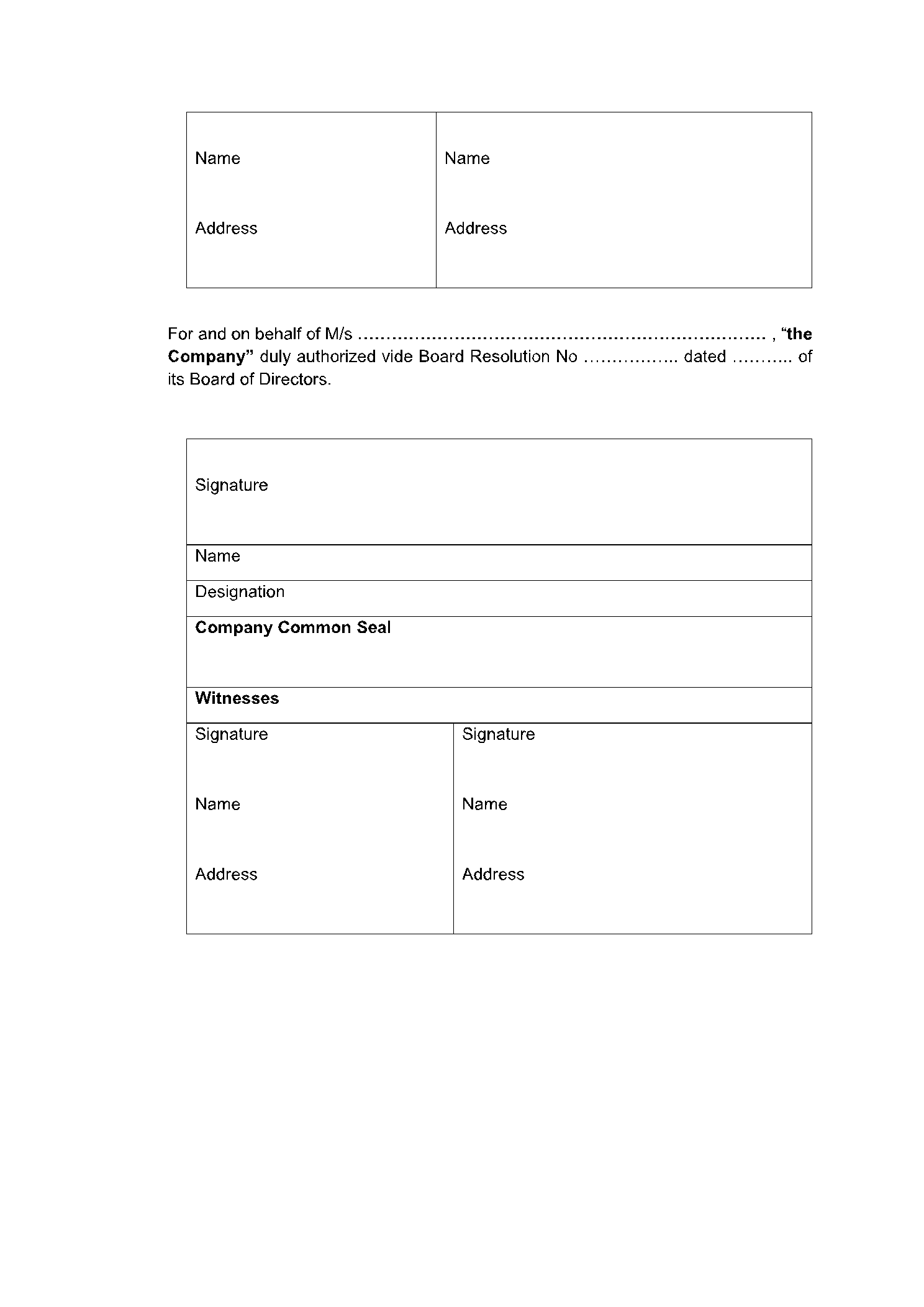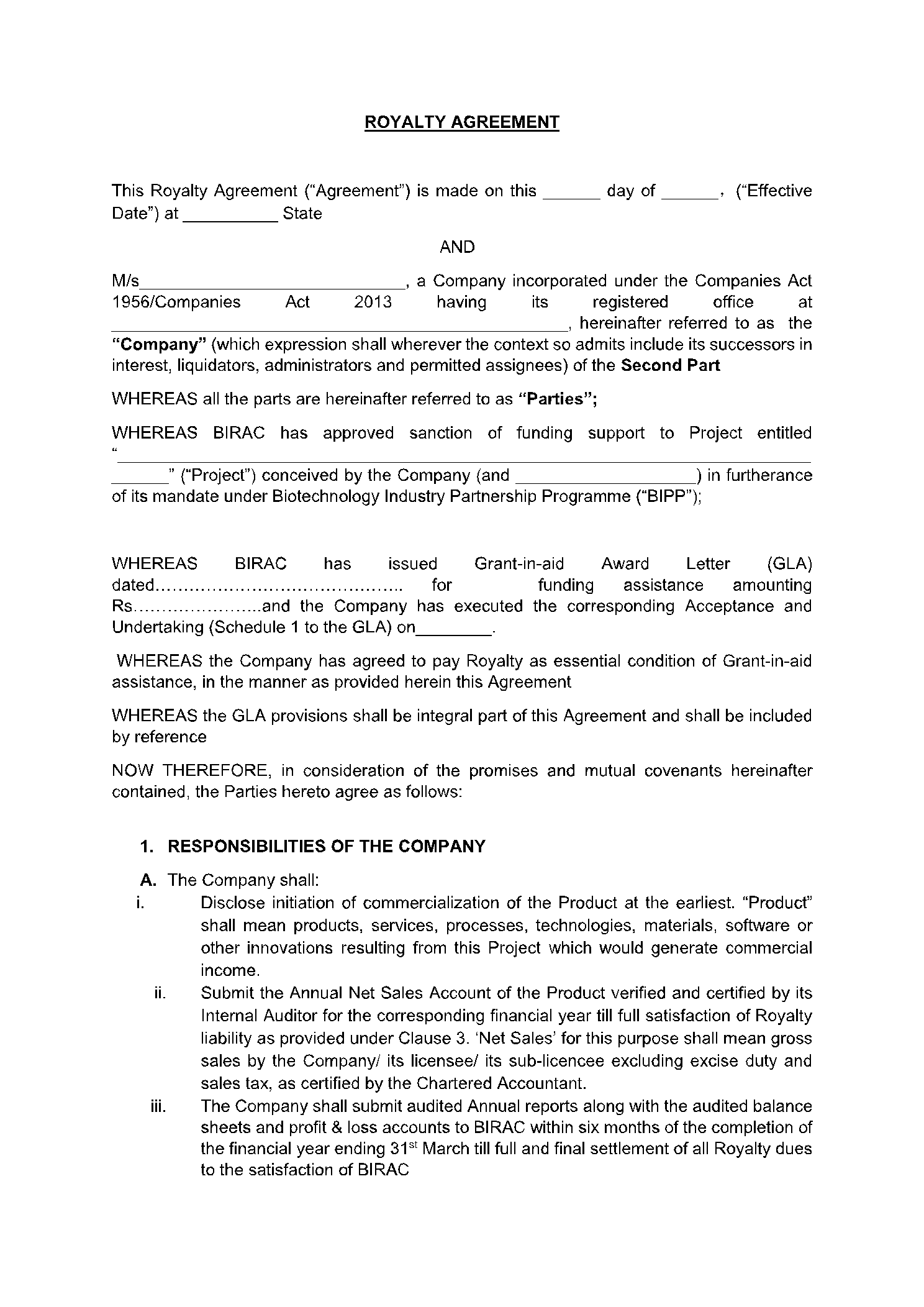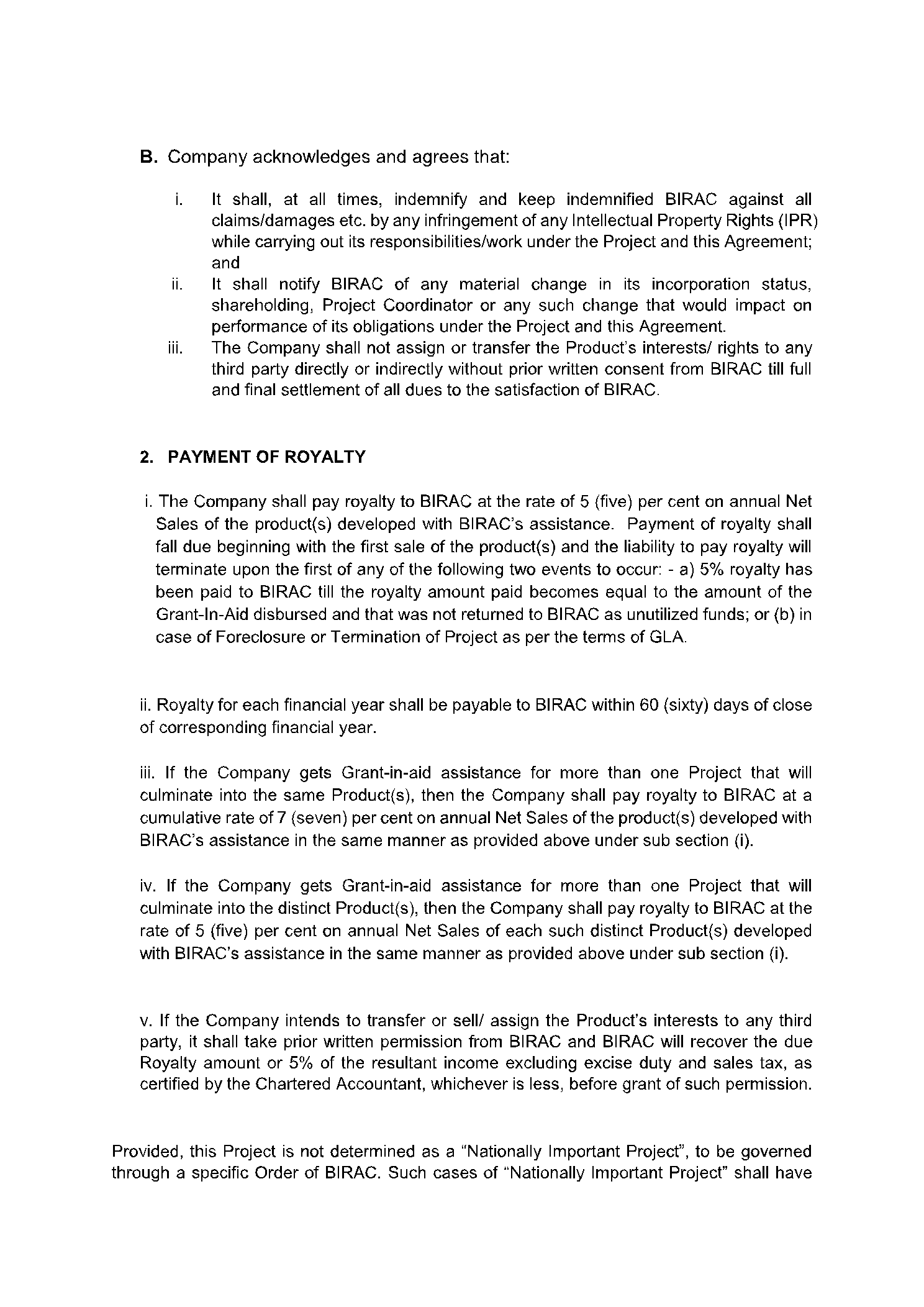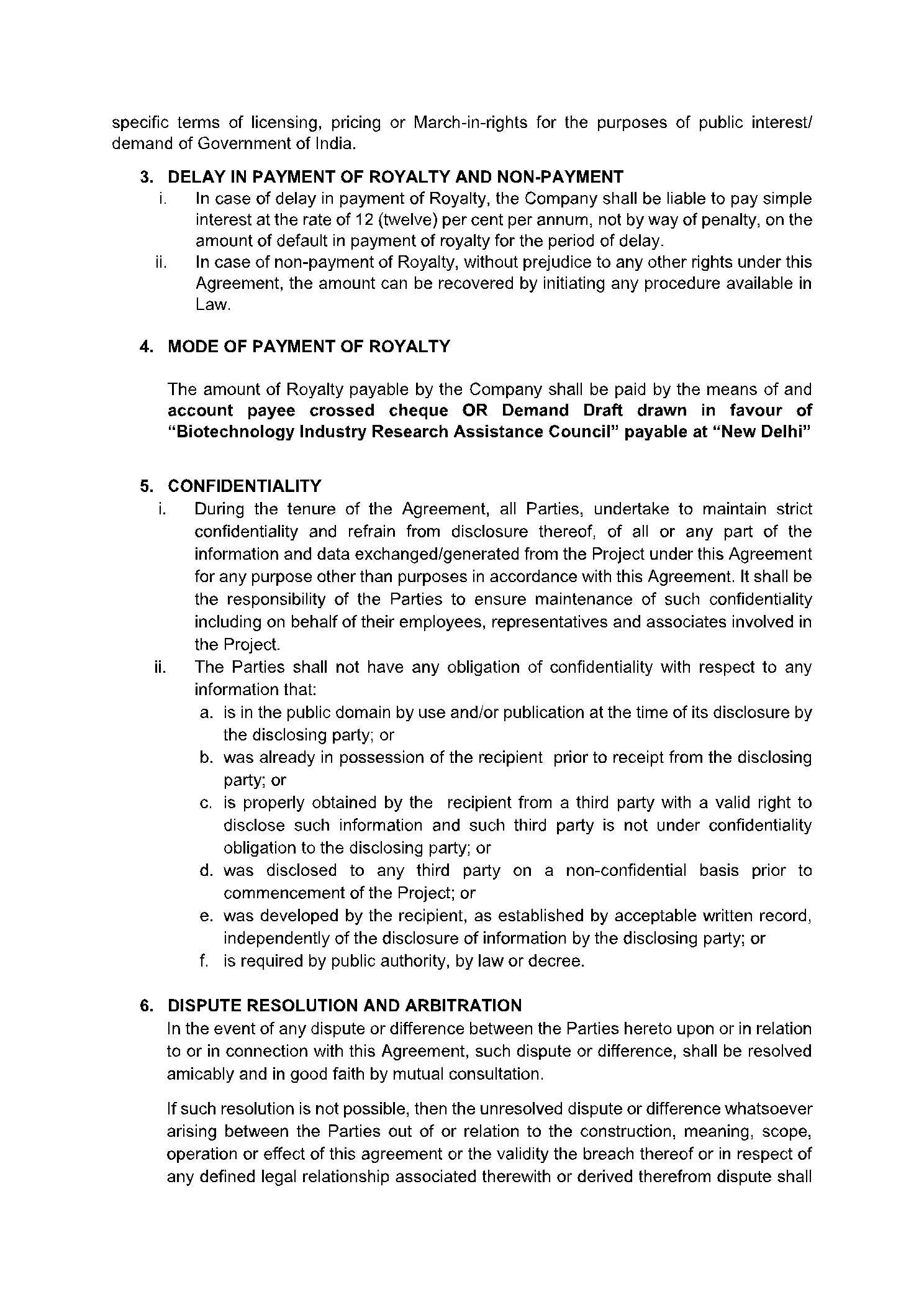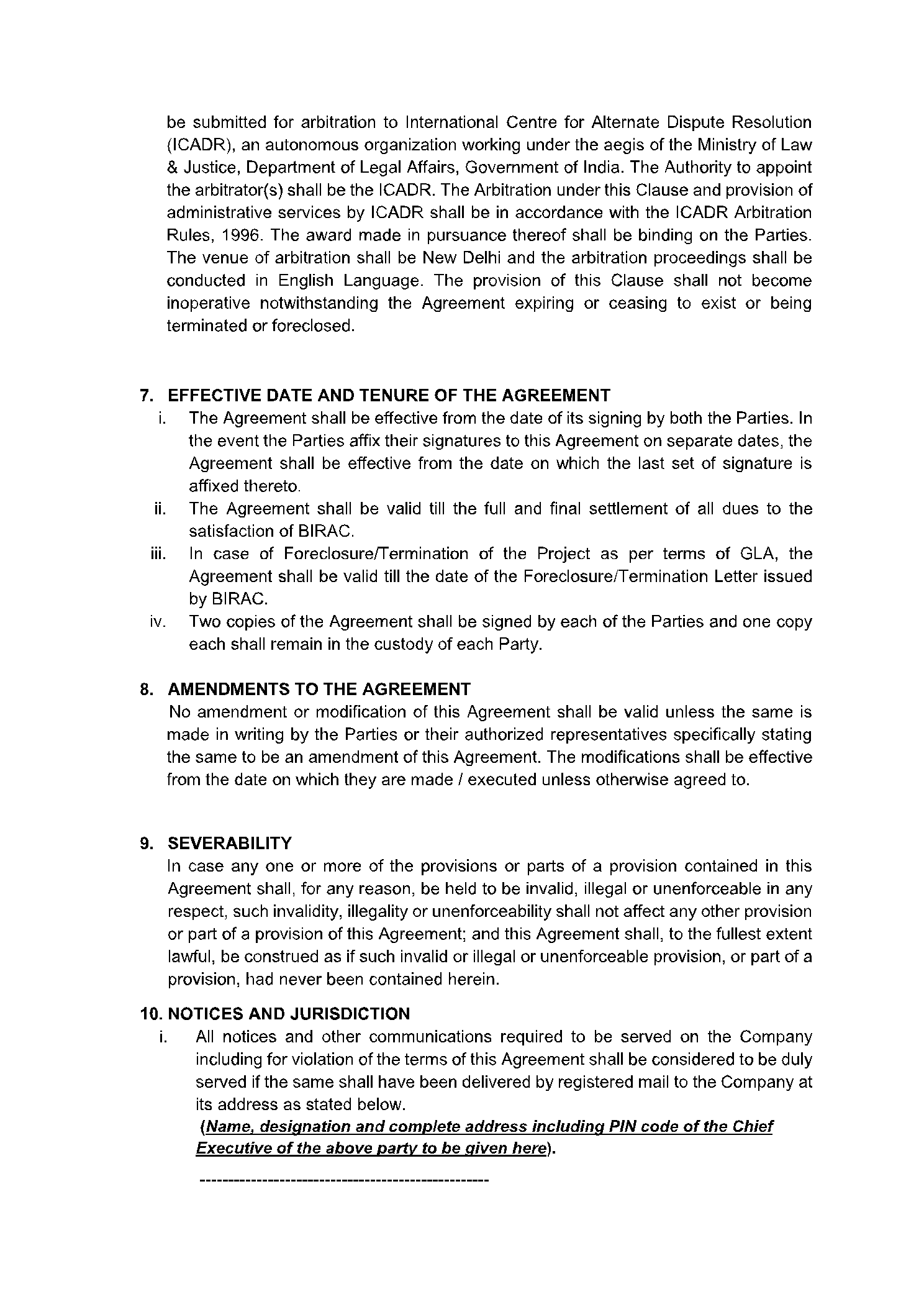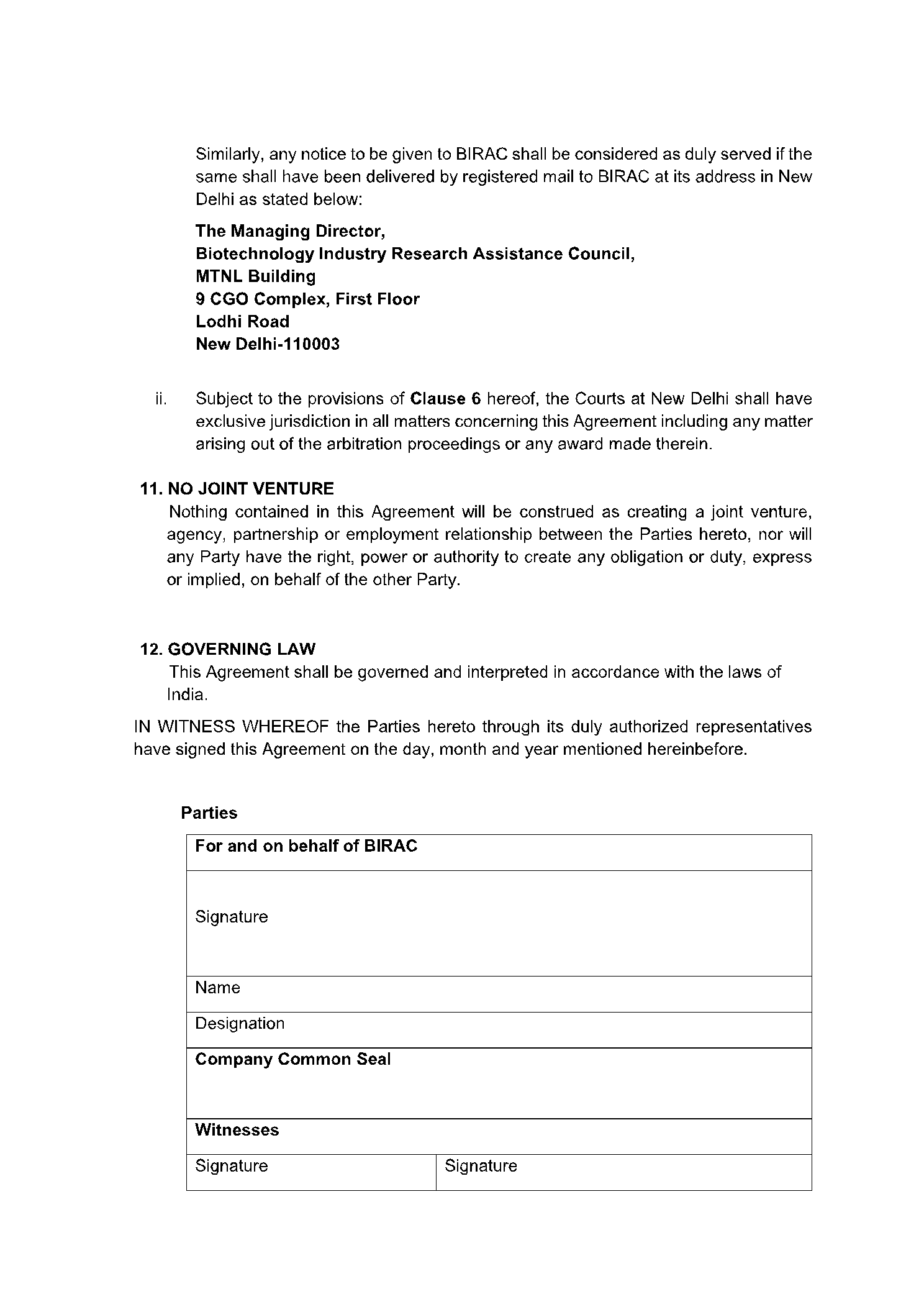Royalty is a type of payment in which one party (known as the franchisee or licensee) pays to another who has the ownership of the respective asset (the franchisor or licensor) against getting ongoing rights to use the asset.
It is usually agreed in terms of the percentage of net or gross revenues that are derived from an asset or a fixed amount per unit sale of that item. As for royalty interest, it gives the right to collect future royalty payments in a stream.
What Is a Royalty Agreement?
A royalty agreement is the legally-bounded relationship between two parties who agree to certain terms for mutual benefits. One party is willing to pay the royalty fees to the other against the transaction of an intellectual property.
The royalty fees are always in the form of monetary compensations to the party who is in possession of intellectual property rights. The parties involved in this agreement are as following:
- Grantor: owner of the asset/property.
- Grantee: who takes interest in the asset/property and is willing to pay royalty fee.
Who Needs a Royalty Agreement?
Royalties constitute a certain percentage of the net or gross revenues earned from the owner’s property, though, can be negotiated based on the cases according to the desire and expectations of both parties.
The royalties are preferred when an original owner or inventor decides to transfer ownership of the asset/property to a third party against a royalty fee from the future earnings generated by that asset/property. These royalties are usually of the following types:
- non-renewable royalties
- copyrighted materials
- trademark royalties
- book publishing royalties
- patent royalties
- art royalties
- music royalties
- franchises
There are also sample royalty agreements available for the assistance of those who need them.
Third parties pay production professionals, musical artists and authors to use their copyrighted materials. TV satellite companies offer royalties against airing the famous programs or stations nationwide.
In the gas and oil industries, royalties are paid to landowners to extract natural resources from their properties.
The thing to keep in mind is that royalty agreement should be beneficial for both parties so that the party using the asset/property can get a chance to enter a new market.
What Are the Contents in Royalty Agreement?
When it comes to knowing the contents of a royalty agreement, following turn out to be the important ones:
- Rights: There must be all responsibilities and warranties documented on the agreement so that both parties can be sure about how they are supposed to proceed.
- Royalties: It must be clear about the amount and other conditions of the royalties. Here, the thing to mention is that royalties are usually paid in two forms - either ongoing or an initial lump sum with respect to the percentage applied on net profits.
- Net Profits: They are considered as total profits earned by the grantee by using the intellectual property after payment of these dues: general and overhead expenditures as well as the costs of production and marketing.
- Royalty Payouts: The grantee is liable to provide all details and progress reports to the grantor on a monthly basis so that royalty totals can be calculated accordingly. The grantor can also get one chance to go for an unannounced audit during a year.
- Indemnity: No party would be held responsible for the damages, loss, or expenses incurred on the intellectual property except for the breach of agreement.
- Confidentiality: The grantee must respect privacy and concerns of the grantor. He/she must not give public details until the grantor approves because this action might cause a negative impact of the grantor.
- Termination: The royalty agreement must be clear about the termination based on the breach of terms, failure to comply with confidentiality conditions and bankruptcy.
- Assignment: The agreement must also explain that both parties have to give approval or notification before they are assigned any sort of responsibility or task. If a task isn’t assigned accordingly, it will be considered void.
- Governing Law: The agreement must be created under the grantee’s state jurisdiction so that legal proceedings can be done as the party might want.
Conclusion
Now that you have enough information about the royalty agreement, you can get one under your circumstances. If you find yourself stuck somewhere, there is nothing to worry about. CocoSign is always here for help.
